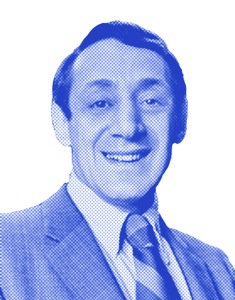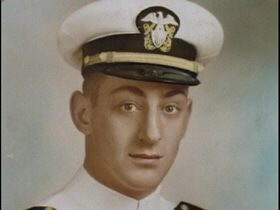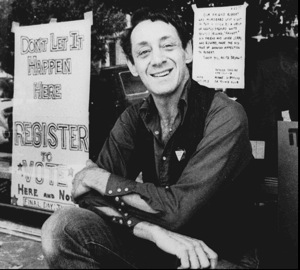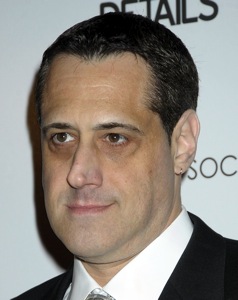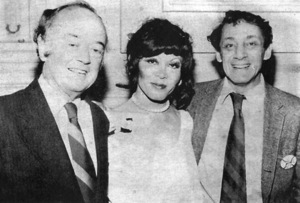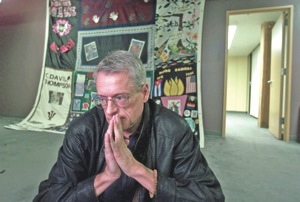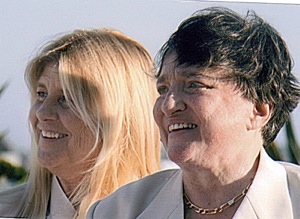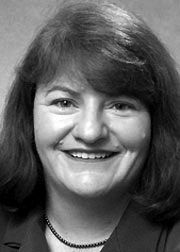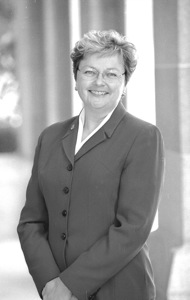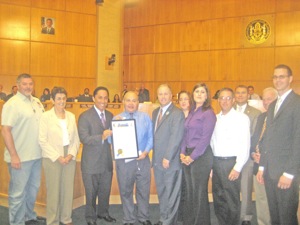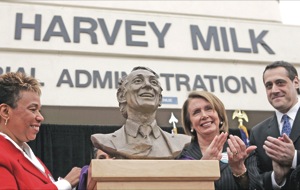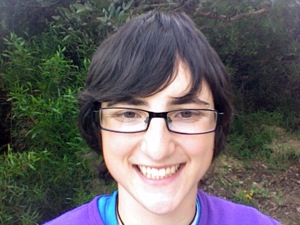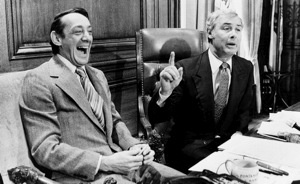-
- Georgia Chief Justice potential nominee for U.S. Supreme Court
- Washington expands domestic partnership law
- Delaware rejects anti-discrimination bill
- Co-founder of HIV/AIDS network recalls effort
- Wisconsin high court to review 2006 same-sex marriage ban
- Nevada endorses domestic partnership bill
- National News Briefs
- World News Briefs
feature
Remembering Harvey Milk
Local community leaders discuss the impact of an icon lost too soon
Published Thursday, 21-May-2009 in issue 1117
It was 1973 and Harvey Milk was giving a speech to the International Longshoreman & Warehousemen’s Union of San Francisco, “We don’t have to wait for budgets to be passed, surveys to be made, political wheeling and dealing. For it takes no compromising to give people their right. It takes no money to respect the individual. It takes no political deal to give people freedom.” After three failed campaigns, Harvey finally won a seat on the Board of Supervisors in January 1978. Eleven months later he was assassinated in City Hall.
Harvey Milk was the first openly gay elected official in California. His vision, his passion, his joy and his death were all to become legend through various films, plays, musicals, operas, books and stories.
In December 2007, Diversionary Theatre commissioned playwright Patricia Loughrey to write a new play about Harvey Milk. After dozens of interviews with community leaders and Harvey’s friends and family, the play Dear Harvey premiered at the Diversionary Theatre in April.
“These stories about Harvey Milk are from the people he knew and the lives he changed,” said Loughrey. “I’ve had the remarkable privilege of talking with people close to him, and it’s exciting to be able to share these intimate, sometimes surprising, stories with our community. We lost Harvey too soon, but in these stories, we get to hear the impact of his love and courage.” The play is based on interviews with Tom Ammiano, Toni Atkins, Jackie Grover, Cleve Jones, Christine Kehoe, Anne Kronenberg, John Laird, Stuart Milk, Nicole Murray–Ramirez, Daniel Nicoletta, Mary Stockton, Robin Tyler, Dottie Wine and others.
“I think the message of the play is to show what one life can do,” Stuart Milk, Harvey Milk’s nephew, told the Gay & Lesbian Times. “The message is to say, here is a man with amazing gifts, openness, authenticity, who was willing to embrace being different.”
The play, which also uses historical materials (with permission, from the Harvey Milk Archives–Scott Smith Collection, James C. Hormel Gay and Lesbian Center, San Francisco Public Library) and materials and excerpts (used with permission) from the Bay Area Reporter, including Milk’s weekly column, the “Milk Forum,” published from the summer of 1975 until his death in November 1978. Loughrey has also secured permission to use many photos by San Francisco GLBT photographer Daniel Nicoletta.
Diversionary’s Executive & Artistic Director, Dan Kirsch, directed the tribute. “It’s been very humbling to work on this project,” said Kirsch. “Harvey’s legacy has been far–reaching and incredibly impactful to the GLBT community, and we are very proud to share this play with our audience.” For the first time, Diversionary will present a school–morning performance of the play for local GLSEN and GSA students.
“One of my hopes for this performance – and the reason I agreed to be interviewed for the piece – is that it is going to be produced and used to educate youth about the importance of authenticity and celebration of diversity,” Stuart Milk said. “This isn’t just about being tolerated. My uncle was not about just being tolerated, he was about celebrating his diversity.”
Loughrey enlisted the help of local composer Thomas Hodges, a student at San Diego State University, to write music to underscore the play.
A bronze plaque at the corner of Market and Castro Street in San Francisco reads:
“In 1973, Harvey Milk opened Castro Camera at 575 Castro Street and moved into the apartment upstairs. Harvey’s store soon became a center for public meetings and voter recruitment drives. Through his involvement in neighborhood affairs, Harvey earned the title ‘The Mayor of Castro Street.’”
The last line on the plaque is a quote from Harvey Milk:
“I am all of us!”
In January 1976, Mayor George Moscone appointed Harvey Milk to the Board of Permit Appeals as San Francisco’s first openly gay Commissioner. In the 1977 District Election of Supervisors, Harvey was elected to the Board from the district.
Harvey Milk was a representative of a despised minority, yet his lasting triumph is that he championed the rights of all people. In his tragically short term as supervisor, Harvey Milk authored San Francisco’s Gay Rights Ordinance and fought for the causes of women, the elderly, ethnic minorities, renters, environmentalists, union members and neighborhood residents. He also worked to establish district elections and improve public transit.
He was the first city official to use a Muni Fast Pass every day.
Harvey Milk and George Moscone were assassinated on November 27, 1978. That night 40,000 San Franciscans gathered at this site and proceeded to City Hall in a candlelight march.
The following are excerpts from Dear Harvey reprinted with permission from Patricia Loughrey.
The cover art for this issue of the Gay & Lesbian Times is by Julie Warren, a graphic artist, teacher and fine artist living in San Diego. Warren created the artwork especially for the world premiere of Dear Harvey at Diversionary Theatre. Limited edition archival prints and posters are available exclusively through Diversionary Theatre. For more information, visit www.diversionary.org.
STUART MILK
When we were young, Harvey used to tell my brother and I about our great grandfather, Morris Milk. Morris had a store called Milk’s Department Store, and my grandfather worked there, as did my father, and Harvey too, when he was young. Every once in a while, someone would hear my name – this is after Harvey’s assassination – and they would say: “Oh, Milk?” and I would expect the next words to be: “So are you related to Harvey?” Instead they would say, “Are you related to “Morris? Milk’s Department Store?” Obviously that’s less and less as the years go by. Morris started three synagogues in New York; his name is on the cornerstone. And the Milk Department Store actually burned down. Harvey told the story that it was sold to Macy’s; it wasn’t sold to Macy’s. That was a good story, and Harvey liked good stories. It actually burned down. Morris brought Christians and Jews – and there was an Indian population there so he brought Christians, Jews and Hindus together in a community room in Milk’s Department Store. He was targeted twice by arson, and the last time it burned down. I think the Shilts book does point to the fact that Harvey had a very strong bond with his grandfather, but it was much stronger in my view than anything that’s been written about. I mean he was kind of his compass. And Morris used to say to Harvey: “Don’t hide your green hair; they can see it anyway.” Being a relative of someone who’s done some amazing things, and has changed lives, does cast both a light and shadow. And I think that Harvey was always trying to find his place where he could continue the work that Morris did.
Harvey was very affected by being born in a time when World War II played such a significant role in the world. That had a tremendous impact on him. He would often talk to me about the capacity of people to do horrible things to other human beings. But he also said that there are people who embrace a… “non–capacity” – I don’t think he used that word – but people who do not have the capacity to do the type of harm and damage that some people are capable of doing. And you know, I think that this commitment to nonviolence was at his very core. I don’t think it was something that he fell into or that he kind of ‘gleaned;’ I think it was one of his innermost values – that you just don’t diminish people.
My first glimpse of Harvey’s colorful life was in 1971, when Jesus Christ Superstar opened on Broadway. I was very young; it was my first musical, and Harvey was co–producer. Harvey took me backstage and introduced me to people: I met Jesus Christ, and I met Judas. I grew up on Long Island, and I’d gone into the city to see Carmen, and all the things that you’d normally do with school, but I had never been to a pop musical. So the gay boy in me absolutely came out. I remember I got the lyrics so I could practice every line. I wanted to be Harrod, of course, and dress up in drag and race across the stage.
That night, Harvey talked to me about Morris’ view of Christ, and what a great humanitarian, great prophet, great mover of society the notion of Christ was. This was unusual, because I grew up in a Jewish family, and there was not a point of reflection on Christianity as anything other than another religion. And here’s Harvey, talking about Morris’ embrace of different religions, and he used Jesus Christ Superstar to have this conversation with me. My mother – who was there – didn’t like the fact that the musical blamed the crucifixion of Christ on the chief rabbis. And Harvey said, “But that’s part of humanity. And whether it happened, or didn’t happen, doesn’t matter. It’s capable of happening, and there is a message greater than: “Who was to blame?”
At my grandfather’s funeral, Harvey and I talked for hours. He was running as an openly gay politician. I was 14. I knew I was gay, and I really resented the fact. I lived in Long Island: it was a horrible thing from my cultural point of view.
I told him, “Look, I feel very alone; I feel so different.” I had conversations like that with my mother and she would try to comfort me by saying, “Everyone feels different at some period of time, and you’ll grow into feeling a part of.” Harvey didn’t do that. He said, “You are different.” And he challenged me to be who I authentically am. He said: “Your difference is the medicine that the world needs. The fact that it’s a little bit rare makes it even more powerful, because there’s not a lot of that medicine around.”
Stuart Milk is the out, gay, nephew of Harvey Milk. He is an activist for gay rights and is the spokesperson for the Milk Family.
NICOLE MURRAY–RAMIREZ
So let me begin at the beginning, all right, with Harvey. It was the 1970s and there really wasn’t anything going on in San Diego other than police beating the hell out of gays and lesbians. There were about two bars – straight owned – because you could not be a homosexual and get a license. We were a conservative city run by the Republican conservative establishment, and we had a homophobic, sexist, bigoted police chief called Ray Hoobler. The sight of a woman police officer. You would never see an African–American officer. Rarely – if ever – a Latino. Not any person of color. And can you imagine: gay or lesbian? They used to come in the bars, beat up people, drag them out, arrest you if you were kissing each other or just dancing with each other – that was considered lewd conduct because you were homosexuals and perverts. They would take you to jail, and you would have to get bailed out. By the time it got to court, it would get thrown out, but you had a record and it destroyed lives.
While all this was going on, understand there was this thing called the Imperial Court. And the Imperial Court is like the gay and lesbian Shriners or Elks, except we don’t have funny hats, we have crowns and gowns. So Harvey liked Latinos – and trust me, I was a drag queen, he was not interested in me. But we would have the deepest discussions on politics, and then we would go to the little court drag events and the bar. And you know he just loved it because the drag queens sympathized with him and understood him. So Harvey started getting seriously involved, and ran for office, and didn’t cut his hair, and everyone kind of thought he was crazy. Every time I would come to town I stopped by the camera shop just to say, “Hello,” and he would tell me what he was running for and sometimes I would give him some money, and I always felt like I was throwing it away.
So I said, “Harvey I think you’re going to have to cut your hair and wear a suit.” And he said, “I hate suits, you know that.” And I said, “If you want to get elected, you know sometimes we just have to do what we have to do.” And here’s me, the drag queen, talking to you with plucked eyebrows, and I’m saying, “Girl you’ve just got to do this. You just have to wear a suit.”
Well, Harvey got elected and they never saw it coming. What the establishment didn’t realize was that he had connected with the people, connected with the unions, connected with the seniors, and he cared. It wasn’t about politics; Harvey cared about people. When he got elected I was so happy I went out and took a Quaalude – I’ll be honest. And celebrated.
Let me tell you what came after his death. There was an explosion. An explosion of anger after the Dan White verdict. Harvey always said “Come out,” and I believe in San Francisco they were so angry and so upset over the assassination that people started coming out. It was like the gauntlet had been thrown down. I mean if they’ll shoot the elected supervisor and the Mayor that’s friendly to the gay community….
Nicole Murray-Ramirez. Queen Mother of the Americas, President of the International Imperial Court, Chair of the San Diego Human Rights Commission.
CLEVE JONES
The Twinkie defense, that was an outrageous thing, and I told the police that there would be a riot and they didn’t believe me. The verdict came out a little bit before 5 o’clock, and within an hour there were thousands and thousands of people milling around on Castro Street. We waited until there were about 10,000, and then we stormed down Market Street. We basically ran the 2 1/2 miles to City Hall. There was a big confrontation, and then the police got their line in and people started throwing rocks and then they started burning the police cars. I think we burned about 20 police cars. And then the police counterattacked and went back to Castro Street where everybody who didn’t want to riot had gone to the bars, and they stormed into the bars and beat the shit out of everybody. And the next night was Harvey’s birthday, and I blocked off the street and put up a stage and we had a huge party for 50,000 people and we danced to Sylvester’s music and sang happy birthday to Harvey Miil – Showing, I think, a remarkably unique homosexual ability to kick ass and then party.
Cleve Jones was a student intern in Harvey Milk’s office, November 27, 1978. On that morning, Dan White entered City Hall through a basement window, shot Mayor George Moscone, reloaded, and then shot Supervisor Harvey Milk.
I had been in the office and I had left a file in my apartment that he needed and he sent me back to get it. So I went back to Castro Street, and there was a picket line set up by this union – the hotel and restaurant workers union was trying to organize one of the big gay restaurants, and I stopped and walked the picket line for five minutes, and then somebody yelled at me out of a bus that the mayor had been killed, and I went down to City Hall and there were cops all over the place and I had a key to the supervisor’s chamber so I just let myself in and saw his body. He only had one pair of dress shoes – he had an old beat–up pair of wingtips with holes in the bottom – and that’s how I knew it was him.
ROBIN TYLER
Harvey Milk was a great gay visionary whose politics extended way beyond the gay community. He was progressive, he was daring, he was unapologetic, he was forceful and he was right, most of the time. A lot of times our community – the gay and lesbian community – would say, “Wait,” and he didn’t want to wait – he was impatient – he didn’t want to wait to do it the “right” way for our rights, and I didn’t want to wait, so what we had in common was that kind of energy that just won’t take “No” for an answer. Do you know what I mean? And you either have it or you don’t. The leaders that came out of that time, they were visionaries, and it wasn’t because they headed organizations, and it wasn’t because anybody even believed in them, it was because they believed in what they did: passionately. It didn’t matter if anybody else believed in the same thing; they kept walking toward the goal. Harvey Milk. Troy Perry. There was a group of us, a very small group of us, who just had the guts to keep going. And what we had in common was the passionate belief that we wanted gays and lesbians to be free people – that we deserve civil rights. That belief didn’t come from hate or anger. It came from love, from loving the idea of civil rights. What Harvey had in common with the other visionaries, and why he was such a great leader, was that he came out of loving something as opposed to a negative, just anger at something. That’s what Gandhi had. And that’s what Martin Luther King had: love, and that’s what Harvey had. Even though he would fight with people and he could be crotchety and capable of anger, underneath it all was his wanting freedom… for us.
TONI ATKINS
Harvey was a veteran. He had served his country. He had worked in the financial world, so he had experience as someone who understood budgets and finance and investments and he was a small businessman. So when he ran for office he had a lot of experience in a lot of different arenas. I remember talking about this during Chris Kehoe’s campaign: When you run as an LGBT candidate, you have to be above and beyond. You have to be better than. Because it wasn’t a level playing field at that point. We were having a hard time getting LGBT people elected to office. And we really knew we had to be at the table. I think Harvey taught us that lesson.
Former San Diego City Councilmember Toni Atkins became the first openly gay acting mayor of San Diego in 2005.
CHRISTINE KEHOE
Clearly he was a martyr, and his death energized the San Francisco community and it mushroomed out from there until he became a national figure. His death was an inspiration to many, many gay people to organize politically; embrace diversity within our politics; reach out to communities of color and minority communities; run for elected office, win elected office; run for City Council, run for County Supervisor, be part of the system, make your changes from within. Those are the kind of messages that I think were so instructive to thousands and thousands of gay people all over the United States.
In June 2002, Senator Kehoe formed the California Legislative LGBT Caucus – the first of its kind in the country. As a California State Assembly member, Kehoe became the second woman ever to be elected Speaker pro Tempore, the second highest-ranking position. She is currently serving a second term as a California State Senator. In 2002 she formed the California Legislative LGBT Caucus – the first officially recognized caucus of openly-GLBT state legislators in the country.
City Council proclaims May 22 ‘Harvey Milk Day’ in San Diego
On Tuesday, the San Diego City Council proclaimed Friday, May 22 as “Harvey Milk Day.” Councilmember Todd Gloria spoke about Harvey Milk before his colleagues unanimously voted to support his resolution honoring the slain civil rights leader.
“Harvey Milk’s role as a voice for underrepresented people paved the way for me and countless others to pursue careers in public service,” said Councilmember Gloria, who was flanked by Mayor Jerry Sanders and Councilmember Carl DeMaio for the presentation. “Because of Harvey Milk’s legacy, I stand before you today as a proud, openly gay San Diego City Councilmember. I stand on the shoulders of all those courageous leaders that Harvey inspired.”
Joining City leaders in the Council Chambers were representatives from the Harvey Milk Diversity Breakfast Committee; the San Diego Lesbian, Gay, Bisexual, Transgender Community Center; the Greater San Diego Business Association; San Diego LGBT Pride; and the San Diego Democratic Club.
“Both in life and death, Harvey Milk was more than a politician. He was a visionary who saw a future in which all races, genders, classes and sexual orientations stood together to support justice and equality,” said Councilmember Gloria. “Harvey Milk exemplified how service and commitment can affect lives outside one’s own demographic and city. Honoring him today will inspire a new generation of leaders of all backgrounds and orientations. The future is in our hands, and I hope we have the courage to follow Harvey’s example and never waver in the fight to secure equality for all Americans, and always remember to ‘give ’em hope!’”
For many years, San Diego has celebrated Martin Luther King Day and Cesar Chavez Day. Now San Diego becomes the first city in the nation to commemorate the life of Harvey Milk with the creation of an annual Harvey Milk Day in the State of California on May 22, his birthday.
Harvey Milk Civil Rights Award of San Diego County
After serving in WWII, José Julio Sarria returned to San Francisco and began a life of activism. In 1961 he became the first openly gay candidate for public office in the U.S. when he ran for the San Francisco Board of Supervisors. Although He did not win the election, he continued undaunted in his fight for civil rights, confounding the League of Civil Education, the Tavern Guild and the Society for Individual Rights, which later opened the nation’s first Gay and Lesbian Center. In 1964 Sarria founded the International Imperial Court System, an association of nonprofit charitable organizations with chapters in more than 65 cities in the United States, Canada and Mexico. He continued to direct the Imperial Court until 2007, when he formally transferred responsibility to Nicole Murray-Ramirez. In 2006, the City of San Francisco named a section of 16th Street after Sarria in honor of his lifetime of activism.
Harvey Milk Diversity Breakfast
The San Diego LGBT Community Center will host the first annual Harvey Milk Diversity Breakfast at Holiday Inn on the Bay at 7:30 a.m. on Friday, May 22, This historic event will take place on the birthday of Harvey Milk. The breakfast seeks to bring together all San Diegans who support equality and justice in the celebration of Milk’s memory. All proceeds from this event will benefit The Center.
Holiday Inn on the Bay is located at 1355 North Harbor Dr. in Downtown San Diego.
|
|
Copyright © 2003-2025 Uptown Publications

